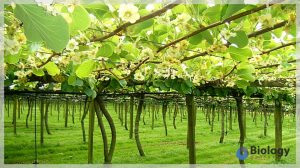Definition
noun, plural: nonoses
A nine-carbon monosaccharide or sugar
Supplement
Monosaccharides are the simplest form of carbohydrates. They are classified according to the number of carbon atoms in a monosaccharide. In particular, a nonose is a monosaccharide with nine carbon atoms. Monosaccharides may also be classified based on the type of carbonyl group they contain. An aldose is a monosaccharide that contains an aldehyde group (-CHO) at position 1 whereas a ketose is one that contains a ketone (C=O) at position 2. Thus, an aldononose would be a nonose with an aldehyde group. A ketononose, in contrast, would be a nonose with a ketone functional group.
Examples of nonoses are neuraminic acid, sialic acid, legionaminic acid, and psudaminic acid.Neuraminic acid name: (4S,5R,6R,7S,8R)-5-amino-4,6,7,8,9-pentahydroxy-2-oxo-nonanoic acid is a nonose with a chemical formula of C9H17NO8. It does not occur naturally. Nevertheless, its derivatives are commonly found in bacteria and animal tissues. For instance, sialic acid refers to any of the N– or O– substituted derivatives of neuraminic acid. The sialic acids are widely distributed in animal tissues and occur as components of oligosaccharide chains of mucins.
Biosynthesis of sialic acid begins by the production of N-acetylglucosamine-6-P via the catalytic action of transferase on glucosamine-6-phosphate and acetyl-CoA. Through epimerization, it is converted to N-acetylmannosamine-6-P that reacts with PEP, resulting in the formation of N-acetylneuraminic-9-P (which is a sialic acid).
In bacteria, sialic acid biosynthesis is carried out by using a mannose derivative. The enzyme aldolase inserts three carbons (from pyruvate) to it, producing sialic acid structure.
Word origin: non(a)– (“nine”) + –ose (relating to sugars)
See also:
Dictionary > Nonose
You will also like...

Mammalian Ancestors
Mammals are a diverse group of organisms, where most of them develop their offspring within the uterus of the mother. Ov..

Biosecurity and Biocontrol
This lesson explores the impact of biosecurity threats, and why they need to be identified and managed. Examples to incl..

Neural Control Mechanisms
Neurons generate electric signals that they pass along to the other neurons or target tissues. In this tutorial, you wil..

The Evolutionary Development of Multicellular Organisms
Multicellular organisms evolved. The first ones were likely in the form of sponges. Multicellularity led to the evolutio..

Ecology & Biodiversity: New Zealand Flora & Fauna
New Zealand is known for its unique biodiversity, caused by its remarkable geography and geologic history. Breaking away..

Biological Cell Introduction
It only takes one biological cell to create an organism. A single cell is able to keep itself functional through its 'mi..

